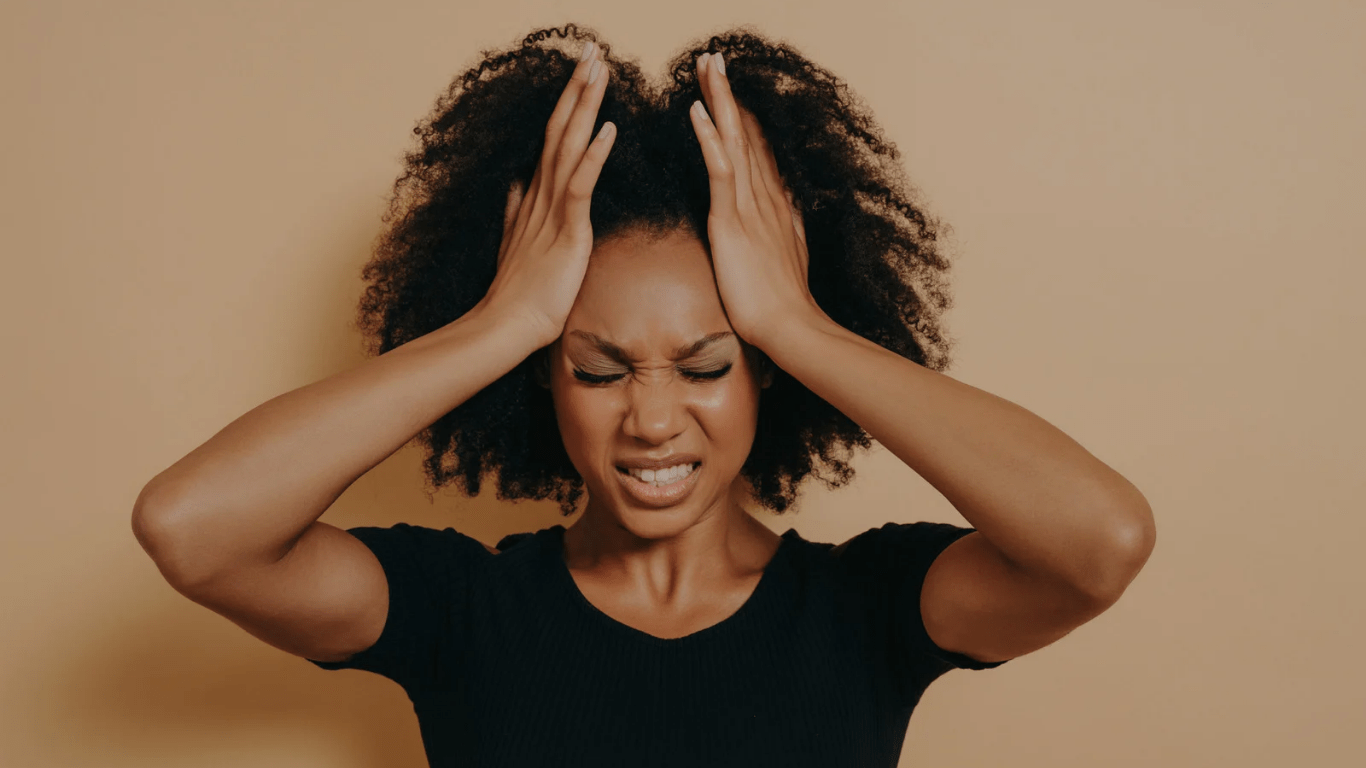Can your hair change color from stress?
Yes.stress can change your hair color even though it is not a direct cause it is. A reason for color change to grey or white.stress can start the natural process of graying by destroying the pigment cells melanocytes in hair follicles.gradually increasing the appearance of grey hair .however stress is not Only reason for increasing the grey or white hair that is more about loss of pigment ( melanocytes) leading to. Grey hair.
In this blog post We see how hair change Color from stress and what are the other reasons causes color change and how we can prevent it.
The Science Behind Hair Color
In order to understand whether stress can have an impact on hair color, it becomes important first to know how hair gains its color in the first place. Hair color results from melanin, which also governs eye color. There are two forms of melanin in hair:
- Eumelanin: Causes black or brown colored hair.
- Pheomelanin: It gives hair red or blond color.
The process of aging and hair graying
The Basics of Hair Color
In order to understand whether stress can have an impact on hair color, it becomes important first to know how hair gains its color in the first place. Hair color results from melanin, which also governs eye color. There are two forms of melanin in hair:
1. Eumelanin: Causes black or brown colored hair.
2. Pheomelanin: It gives hair red or blond color.
This is the mixture of both kinds of melanin in a variety of concentration that decides your natural hair color. So, in case you have a high percentage of eumelanin but less percentage of pheomelanin, then you bound to have dark brown or black hair. Low percentages of eumelanin combined with pheomelanin will give you red or blonde hair.
Hair follicles contain cells called melanocytes that produce melanin. These cells work by pumping pigments into the shaft of growing hair; that is how hair comes out with its distinctive color. As we age, the action of melanocytes slows down gradually, and eventually, over a period of time, the pigment in the hair fades to become gray or white.
The process of aging and hair graying
Generally, grey hair is associated with old age. As such, secondary dying melanocytes cause minimal melanin synthesis; your hair turns gray, and you become aware of this at ages in the 40s or 50s. The process is very much controlled by heredity: some people may turn grey in their 30s, while in others it does not happen until relatively very old ages.
But premature graying-that is, an early onset of significant grayness before age 30-is not particularly unusual. Other causes include genetic factors, other medical conditions (such as vitiligo), and various environmental influences.
Relation between Stress and Hair Color
This is something believed for such a long time-since centuries even-if grey hair appears more quickly or even instantly because of stress. So how much of it is true?
Recent research has only just begun to uncover that answer, and though stress won’t turn your hair gray overnight as folklore has long believed, there is powerful evidence that chronically stressed people may experience their natural graying process more rapidly.
1. Oxidative Stress and Hair Color
The first major mechanism through which stress affects hair color found is through oxidative stress. Oxidative stress has been defined as the result of an imbalance between the free radicals and the antioxidants in your body. Free radicals are unstable molecules, which cause cell damage, including melanocytes.
It causes your body to produce more free radicals. After a long time, this may damage the melanocytes of the hair follicle due to oxidative stress and thus may cause decrease in melanin along the hair shaft, but it leads to bleaching of hair that leads to premature graying.
2. Cortisol and Its Correlation to Quality of Hair
It causes the release of the hormone cortisol produced in the adrenal glands, but it affects most of the human body’s functions: it initiates metabolic processes and strengthens immunity. Thus, cortisol levels are maintained at relatively high values for long periods under conditions of chronic stress. This has numerous consequences on the body, from stimulation of hair growth.
High levels of cortisol may disturb the normal conducting of hair follicle functions and push them into resting phase known as telogen. Telogen is the stage where hair stops growing, becomes brittle, and falls out. Stress-induced hair loss rarely affects color because increased shedding might highlight any gray hairs.
3. Hair follicle stem cell drainage A landmark 2020 study by Harvard researchers illuminates why stress leads to graying hair. According to the study, the sympathetic nervous system-roughly enough, the body’s ‘fight or flight’ response-on experiencing stress rapidly depletes hair follicles of melanocyte stem cells. Melanocyte stem cells constantly replenish melanocytes that produce melanin.
Any lost stem cells cannot be replaced, hence once hair loses the capacity to produce pigment permanently. This research proposes that even though this stress might not cause your hair to go white overnight, such protracted periods of stress may drain the melanocyte stem cell reservoir, thereby accelerating the graying process.
Myths and Misconceptions About Stress-Induced Hair Color Change
Despite scientific studies that prove a link between stress and premature graying, most myths about the relationship between stress and hair color thrive. Let’s dispel some common ones:
Myth 1: Stress turns your hair white overnight. Very fairy tale but biologically impossible since hair changes color so dramatically in such a short time. Hair grows and once the strand of hair has left the follicle, there is no further color change unless artificially treated. Any change in color happening due to stress will probably take months and years, respectively.
Myth 2: Gray hair is due to bad health and stress. Stress and health problems could make people go white early, but genes will be the strongest determinant of when and how your hair will go white. Thus, many unhealthy and stressed people grow white prematurely for no other apparent reason but for their genetic makeup.
Myth 3: Stress can cause gray hair to turn its color back. Once the melanocytes have been lost and hair turned gray, the event is usually irreversible. However, some anecdotal evidence indicates that lessening one’s level of stress in life slows the procession to gray hair in some individuals, and such findings deserve scientific verification.
Other factors that can contribute to premature graying are:
While stress is one of the conditions that can cause hair color change, there are other such influences. Among them are:
1. Genetics: Genetics is the most important characteristic that determines a person’s going gray age. If, for example, your parents started growing gray while you were very young, then you could definitely follow on their heels.
2. Malnutrition There are some vitamins and minerals, like vitamin B12, missing in your diet, which causes early graying. B12 promotes healthy red blood cells that ensure proper oxygen delivery to hair follicles.
3. Smoking: They also put one at the risk of developing precocious aging. The chemicals in tobacco smoke destroy the hair roots, and eventually, melanin produces slowly.
4. Autoimmune Disorders: Some autoimmune diseases such as vitiligo and alopecia areata cause early graying of hair or even hair loss.
How hair color change be reversed due to stress?
Perhaps one of the questions asked most frequently is whether stress-induced graying can be reversed. Impossible to reverse would be graying because of age or genetics, but new studies sometimes present evidence that the graying caused by stress might be reversible.Researchers at Columbia University published a study in 2021 showing, in exceptional cases, that stress can be reduced to cause repigmentation of the gray hair. Observations were made that in some cases, there was regaining of pigment on the few gray hairs of some participants as their levels of stress had reduced but only on some follicles and not on the whole scalp.
In this field, results remain preliminary, and much more would have to be done before it could be regarded as a feasible possibility or proved that stress-related graying is reversible.
Do protect your hair from stress damage. Stress cannot give you gray hair overnight, but managing stress surely helps in overall health and wellness. Here are some practical tips that will help you cut down your levels of stress and keep your hair healthy:
1. Stress Release Exercise Methods : Gradually schedule time for yoga, meditation, and deep breath techniques in your daily routines. They minimize the levels of the hormone cortisol. Moreover, they dailify the chronic effects of stress
2. Healthy diet. This is one diet of antioxidants that reduces the level of oxidative stress in the body. Healthy foods are considered to contain vitamins B, C, and E as well as minerals such as zinc and iron.
3. Be active. Exercise can be an outright bet reducer of stress. The body secretes endorphins during exercise, and such helps improve mood, thereby countering the effects brought about by the body’s responses to stress.
4. Adequate Resting: Extreme, long-standing sleep deprivation can even intensify the stressors that negatively impact both hair and skin. Get enough sleep for 7-8 hours at night to get proper rest.
5. Consult a Professional: Stress is often so overwhelming that it is just what is needed to obtain strategies for dealing with stress and build quality of life.
Conclusion:
So, does stress actually make your hair go gray? The answer is a resounding yes—although nothing like the drama the myths might claim to. Stress can’t suddenly turn your white overnight, but chronic stress may speed along graying by depleting melanocyte stem cells and can also elevate oxidative stress among other things. High levels of cortisol can also lead to hair loss and thinning, thereby making any grey hairs stand out that much more. It is through controlling stress and good health.

